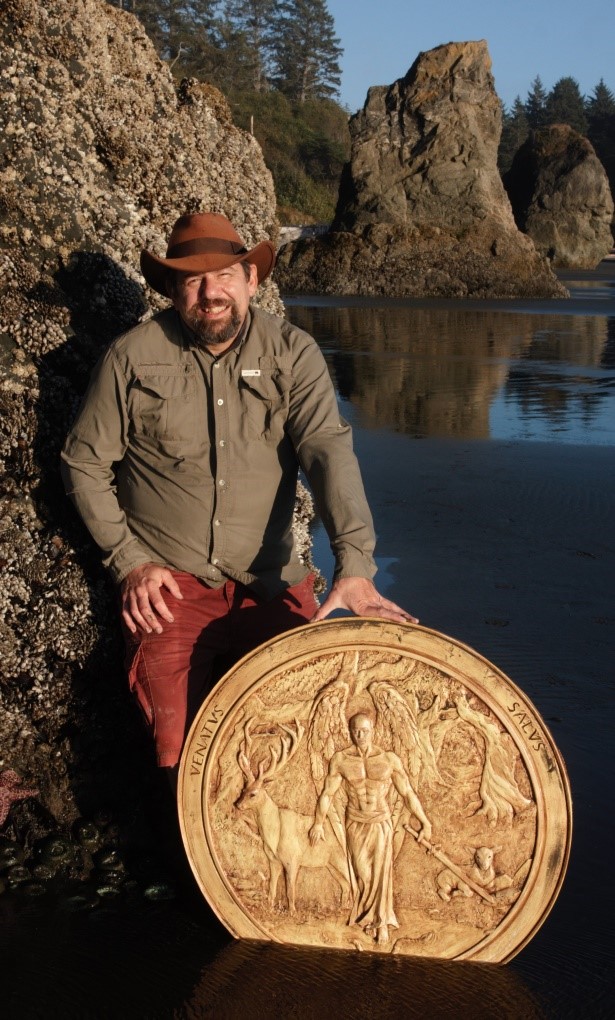If you liked this post, say thanks by sharing it.
By Larry Short
I was struck today by Pastor Steve’s thought-provoking Oasis: Elim at Home message about isolation and Noah’s Ark. You may already know that I’m a huge fan of the Noah’s ark story (Genesis 6-8). My entire office at home is decorated with Noah’s ark artwork. When I was in my 20s, I wrote a novel about the situation in Noah’s day. I’ve always found thinking about this biblical-historical account extremely fascinating. And despite the critics of the story, I have no doubt it’s literally true—because Jesus Himself said so.
In fact, I
was super excited a few years back when Russell Crowe (an actor I respect)
starred in a new movie called Noah. Darlene and I found the nicest
theater we could watch it in and rushed to see one of the first showings.
And we were
bitterly disappointed. To the point of anger, even. How could anyone possibly
mess up such a beautiful, compelling story so badly?
Anyway, I
won’t give my critical review here. Suffice it to say, if you haven’t seen it
yet, don’t bother.
But with all
my thinking over the years about Noah and his story, I had never really thought
about what it must have felt like to
actually BE the last family on earth—isolated with a menagerie in a huge barge,
being tossed about on the waves in a world gone mad.
Steve asked
some perceptive questions that got me going:
What was the downside
of being on the ark?
Well, at
first you think of all the obvious things. The smell must have been special. No
power, no running water, no real sanitation—and I doubt you’d want to build a
fire on a big wooden boat made of pitch, so how would you cook? Meals must have
been rather dull.
But beyond
that, there are the incalculables more difficult to imagine. How would you
actually feel knowing that you were
the last family on earth? How would you feel knowing that everyone else
you had ever met and cared for was now dead? Talk about a feeling of isolation!
And how
would you think about the future? Would you wonder, as the days dragged on, if you
might have to live out the rest of your life on that big, stinky boat? How they
must have longed for dry land.
What do you think Noah
and his family were missing?
I am a person who loves to spend time in the mountains. Normally April would be the start of my morel mushroom-hunting season, and my son Nathan and I would head out to the Eastern Cascades, probably meeting my sister Kay and her husband Tom there, to launch out into our state’s beautiful forests in search of our elusive prey. But now, all the national forestlands, national and state parks, and camping facilities have been closed. I can still walk through the little wooded areas near my home, such as the Tacoma Watershed, which is nice, but it’s not the same. I’m itching to get back out into the mountains and hunt some mushrooms again!
And I also
feel guilty when I feel this way, because I know it’s far worse for many others,
such as for our friends Larry and Marilyn Nelson, who are confined in their
small apartment in a retirement home, and for those who have been exposed to
the virus and live in fear or who are sick and are not yet sure why. I am
thankful every day not to be in that
boat.
But I wonder
how Noah’s sons and daughters-in-law felt when they looked out over the rail
onto that endless, churning sea. Would a day ever come when things would be
different? When the hope they had for a new and better world would become a
reality?
Finally, what were the
advantages of being isolated on the ark?
I think the
biggest and most obvious advantage was that they were alive! In His mercy, God
spared them from His incredible judgment against a rebellious world.
And this
knowledge would have given rise to an incredible sense of hope. God had a plan.
He intended to restart civilization. They would see it through. They had a
second chance!
In many
ways, I feel the same way about the current crisis. Yes, we are at home, isolated.
But we are alive! God in His grace and mercy has spared us from this plague.
And, while a resurgence is always possible and we must be diligent to guard
against it, Washington State Department of Health data shows that infections and deaths in our state
are on a downslope. Things
will get better! God has a plan. There is hope.
Hope is
incredibly important to the human condition. Many people misunderstand the word
hope because it has been diluted by our culture’s current abuse of the
term. But really, in my view, it is more akin to the term vision.
And the
Bible says, “Where there is no vision, the people perish” (Proverbs 29:18 KJV).
I think the
same thing is true of hope. It is a gift from God to renew us (Isaiah
40:31) and keep us focused
on His plan (Jeremiah 29:11). It’s hope that arises because He
has saved us and has called us to love Him and live committed to His purposes (Romans 8:28)—hope that we are on a journey, and
at the end of that journey will be a new and better world!
There are
many good things about our current isolation: It is keeping us safe. It gives
us time to think, time to get our priorities straight, time to readjust our
focus. And it brings to us hope for a coming day when we will see the goodness
of our beautiful Savior in the land of the living (Psalm 27:13)!
Views – 240
If you liked this post, say thanks by sharing it.


 Follow
Follow
